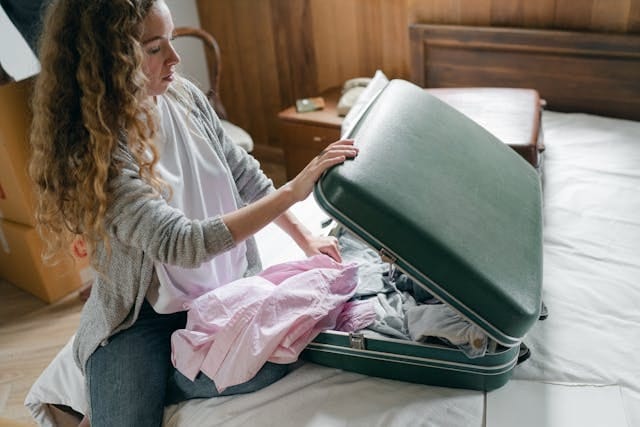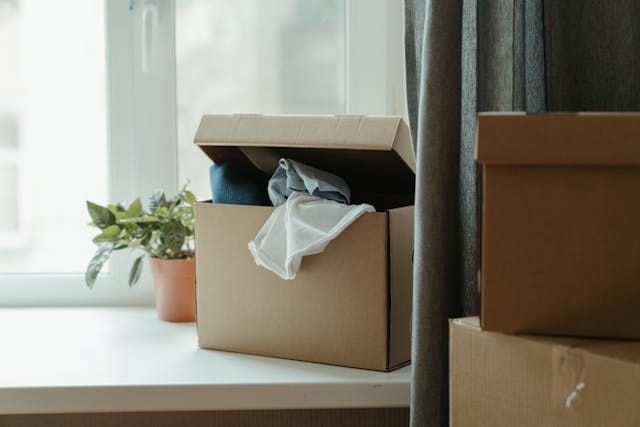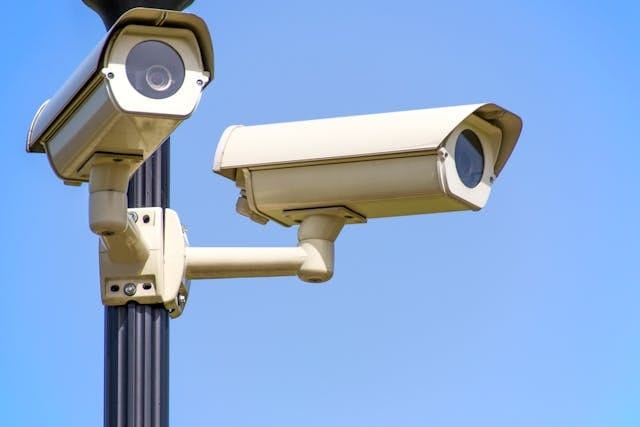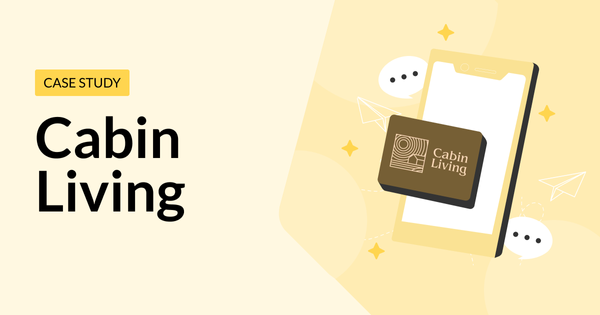Airbnb Horror Stories: How to Avoid and Solve Common Airbnb Nightmares

We’ve all heard the horror stories from both guests and Airbnb hosts. Visitors whose stays sound more like a night at the Overlook Hotel than a relaxing getaway.
Nightmare tenants costing the property owner obscene amounts of money and leaving plundered houses in their wake.
In this article, we’ll look at some of the usual tales and some unbelievable stories and give you some advice on how you can avoid losing revenue to these Airbnb nightmares.

Nightmares for Airbnb Hosts
Most of the most common horror stories can be sorted into a couple of categories that we’ve set apart as “scenarios”. We often find that these don’t really happen in listings where hosts share their own homes, but it’s still a great idea to scope out the variety of nightmares so you’re prepared for that rainy day.
You’ve Been Catfished!
The scenario
A single guest books your property and everything seems fine. However, the person that arrives to check in is not the person that booked the stay although they claim that they are the same person. It turns out that their profile image is actually a stock photo.

How to avoid this Airbnb nightmare
Be cautious about accepting guests that don’t have any reviews at all. If you’re unsure about a guest or something seems off, don’t hesitate to ask more questions or do a quick search for information about the guest on the web. The guest may be catfishing you to avoid you finding out about their criminal background.
Alert Airbnb right away about the profile and cancel the booking before the guest arrives.
Intoxicated Guests

The scenario
Your guests just arrived. Unfortunately, they’ve already had a bit too much to drink (or worse) and are being less than friendly. The situation is rapidly becoming an Airbnb nightmare. You feel uncomfortable letting them stay on your property and they’re starting to cause a scene.
How to avoid this Airbnb nightmare
If the person is on your property and is very drunk, contact Airbnb right away and request the booking to be cancelled so that you can have them removed from your property or sent to a hospital. If you believe that you are in physical danger or there is drug use, contact the police first.
Finally, make sure that you make it clear in your listing as to what you will tolerate when it comes to the use of alcohol in your house rules.
Storm of the Century

The scenario
Your guests have just arrived and suddenly a tornado warning is put out by the local emergency authorities for your area. The storm rips through and tears the roof of your property. Fortunately, your guests are safe but their belongings and your property are completely destroyed.
How to avoid this Airbnb nightmare
If you know that a storm is on the way, it’s okay to cancel the booking with your guests. Let them know that their safety comes first even at the risk of a bad review. If your guests are already affected by the storm, contact Airbnb and your insurance company for assistance right away.
Airbnb will help the guests arrange some alternative accommodations and you can then go ahead with assessing the damage and filing an insurance claim.
Flakey Tourists
The scenario
It’s the height of the holiday season and you’ve managed to fill the bookings for your beachfront property for the entire month. Unfortunately, the guests that paid for 3 of those 4 weeks have just decided to cancel the night before they were scheduled to arrive.

How to avoid this Airbnb nightmare
Consider using a Strict Cancellation Policy to protect yourself from guests who want to cancel at the last minute. In addition, you should also limit the number of days that guests can book your property during the busy season so that a single guest can’t ruin your income for the entire month.
Finally, make sure that your listing is available on several short-term rental sites so that you have a better chance of having new guests book your property if one decides to cancel on short notice.
It’s Party Time

The scenario
Your guests ask to book your property for the weekend and they say that they are looking to spend the weekend sleeping and reading books. Unfortunately, the real plan is to have a wild party at your property and it’s the beginning of yet another Airbnb horror story.
After the guests leave on Sunday morning, without notifying you, of course, your cleaning service arrives to find your place in shambles.
How to avoid this Airbnb nightmare
Watch out for guests who are only looking to book your listing for one night, especially on the weekends. You should also check your guest’s reviews to see if other hosts have had problems in the past.
Finally, don’t allow additional guests to stay at your property if you’ve only agreed to a certain number at a time. Installing video surveillance on your property will also help you to catch the party guests arriving so that you can call the police and shut it down.
You’ve Been Robbed

The scenario
Your guests book a stay at your property and everything seems fine. In fact, they don’t even bother you with any questions at all. However, once they leave, you notice that they helped themselves to a lot more than you offered them. Some of your belongings including expensive artwork and cash are missing.
Now those guests are long gone and they’re not responding to your Airbnb messages. Airbnb has not offered to cover the cost of replacing the items.
How to avoid this Airbnb nightmare
Don’t leave valuables on your property. If you have expensive furniture and home decor that you want to remain in the house while guests are staying there, make sure that all items are covered by an insurance policy.
You should also make sure that you file a police report right away after you notice that the items are missing so that they can investigate the matter.
Imaginary Infestation

The scenario
You’ve just booked a new guest and you’re excited about their stay. Everything seems to be going normally until they check out.
Soon after they’ve checked out, you receive a message from your guests saying that your property is infested with bugs or vermin. The guests are demanding a full refund and are threatening to report you to Airbnb.
However, your property actually isn’t infested and it’s all a scam.
How to avoid this Airbnb nightmare
Ask your guests to report any problems that they may experience immediately upon arrival. If the entire property is indeed crawling with roaches or mice, there’s simply no way that the guests won’t bother telling you about the problem until they’re ready to leave.
Make sure that you fumigate your property regularly and obtain the proof from pest control company that you’ve had the work done. A recent inspection can work in your favor to prove your case against the guest.
In addition, it’s also a good idea to make sure that you take photos and video of your property between guests so that you can prove your case in the event that the guest tries to provide “evidence” to the contrary.
Real-Life Horror Stories
Aside from the usual tales of mix-up’s and unruly guests, there are some truly unbelievable stories out there. All the more reason to take precautions and make sure that you have insurance in case of a bad experience.
Illegal Activities

A group of drug users made up a story about a sick child to gain access to a woman’s Airbnb in Sydney. Once inside, they turned the place into a “junkies’ den,” trashed the home, and caused over $10,000 in damage.
They Won’t Leave
It’s one thing to have nightmare tenants, it’s another when they decide they’re moving in.

Cory Tschogl rented her Palm Springs vacation apartment to two brothers for a six-week stay, and everything seemed to go smoothly at first. But when it came time to check out, they refused to leave. The brothers claimed California’s tenant rights made it difficult to evict anyone who had stayed longer than 30 days without covering relocation costs.
Fortunately, after plenty of media attention and help from a few lawyers, the Pashanin brothers snuck out quietly in the middle of the night two months later, with no harm done. (Airbnb even covered the legal fees.)
Real life Airbnb Nightmare: The Pop-up Brothel
In a classic case of trusting your instincts, one host learned the hard way that an Airbnb guest offering to pay in cash, rather than through the platform’s secure system, was a major red flag.
A quick Google search of the guests’ names revealed they were actually high-profile escorts, using the property to meet with clients.
Nightmares for Airbnb Guests
Hosts can pick up some great tips by reading about bad experiences shared by guests. These stories offer useful insights into what can go wrong and show how to avoid the same problems.
Whether it’s about miscommunication, safety concerns, or unexpected surprises, paying attention to guest feedback—both in your own reviews and from other hosts—can help you improve your hosting style, make your place even better, and avoid those common headaches. After all, it’s way easier to learn from someone else’s mistakes than to make them yourself!
Dirty Rooms
Guests sometimes find places that aren’t cleaned properly, like messy bathrooms, unwashed linens, or even leftover snacks. Make sure your place shines before each guest arrives! A good clean-up or a pro cleaning service can keep things looking fresh and inviting.
A Rule Book the Size of War and Peace
While it’s great to share important information, a rulebook packed with too many dos and don’ts can make guests feel like they’re walking on eggshells. Instead of going overboard, keep it simple and highlight the key rules that really matter. Don’t overreach. Travelers are renting from you and assume a certain level of autonomy. Things like limiting internet, disallowing friends, or any sort of arbitrary rule that will make them feel like children will have them choosing hotels.
Focus on the essentials, like check-in and check-out times, guidelines for using amenities, and any safety info. This way, guests can easily grasp what’s expected without feeling bogged down by endless rules. A light, straightforward rulebook can help create a welcoming atmosphere that lets everyone relax and enjoy their stay!
Harassment from Hosts
While being friendly and available is great, guests really appreciate their privacy and space. Constantly checking in, showing up unexpectedly, or asking too many personal questions can make guests feel uncomfortable and unwelcome.
Instead, aim to strike the right balance—be friendly and approachable, but also respect their downtime. A simple welcome message and being available for any questions or help goes a long way. By giving guests the space they need, you’ll create a more enjoyable experience for everyone, and they’ll be more likely to leave glowing reviews!
Steps You Can Take as an Airbnb Host
In addition to handling specific scenarios, there are general steps that you can take to prepare for and avoid Airbnb nightmares.
Setting House Rules

In addition to the rules in your listing, leave a physical or digital house rule book for guests. Include check-in and check-out procedures, guidelines for using amenities, and emergency contacts. Don’t make this complicated and become a nightmare host yourself. You can use our guide to setting up a house rule book to help you perfect the art.
Stick to the Platform
Always complete bookings and payments through Airbnb’s secure system—it’s there for a reason! If someone insists on paying in cash or outside the platform, it’s a red flag.
Stick to Airbnb’s messaging platform for all communication, so everything is documented. It can be a lifesaver if disputes arise later.
Become Familiar With Airbnb Customer Service
Familiarize yourself with Airbnb’s customer support options and policies. Knowing how to quickly get help and what protections are available to you can make all the difference if something goes wrong.
Make Your Expectations Clear Through Your Listing
Lay down specific guidelines in your listing—no extra guests, no parties, etc.—so it’s easier to manage expectations and handle rule-breakers. Even the descriptive language you use can help set guests expectations – “charming country cottage” doesn’t exactly scream “rager”.
Vet Your Guests
A quick Google search of potential guests can go a long way. Check their reviews, social media, and profile details to get a sense of who’s staying.
Use Security Deposits and Insurance
Make sure your listing includes a security deposit and take advantage of Airbnb’s Host Guarantee and additional insurance options for extra protection.
Install Security Features

Consider adding outdoor cameras or smart locks to monitor your property and manage access. Just make sure to disclose them to your guests upfront and that they adhere to Airbnb’s security camera policy, i.e. no cameras in the listing’s interior. That means no cameras in any hallway, bedroom, bathroom, living room, or guest house. It doesn’t matter if they’re turned off or disconnected, no cameras allowed.
That being said, it should be pretty obvious that hidden security cameras are strictly prohibited (and quite frankly very creepy). Do note that these rules also apply to the common areas and shared spaces of private room listings (ex: a living room).
Automate Your Management
To avoid having your window punched in after a double booking, like this host, consider automating the admin with a management service like iGMS.
Final Thoughts
Airbnb can be a fantastic way for hosts to earn extra cash and for guests to enjoy unique stays. But it’s important to be ready for some challenges that might pop up. From difficult guests and last-minute cancellations to more serious issues like theft or illegal activities, being prepared is key to avoiding Airbnb nightmares.
Start by setting clear house rules, using Airbnb’s security features, and automating property management tasks. Trust your gut too—it can help you protect your property and keep things running smoothly. And don’t let these experiences affect other guests.
Learn from other hosts’ experiences and make the most of the tools and resources available to you. For even more peace of mind, consider using iGMS. It’s great for automating guest communication, managing bookings from multiple platforms, and handling day-to-day tasks. This way, you can focus on giving your guests a great experience without the stress.
Remember, a little prep goes a long way in turning potential hosting disasters into smooth, successful stays.






